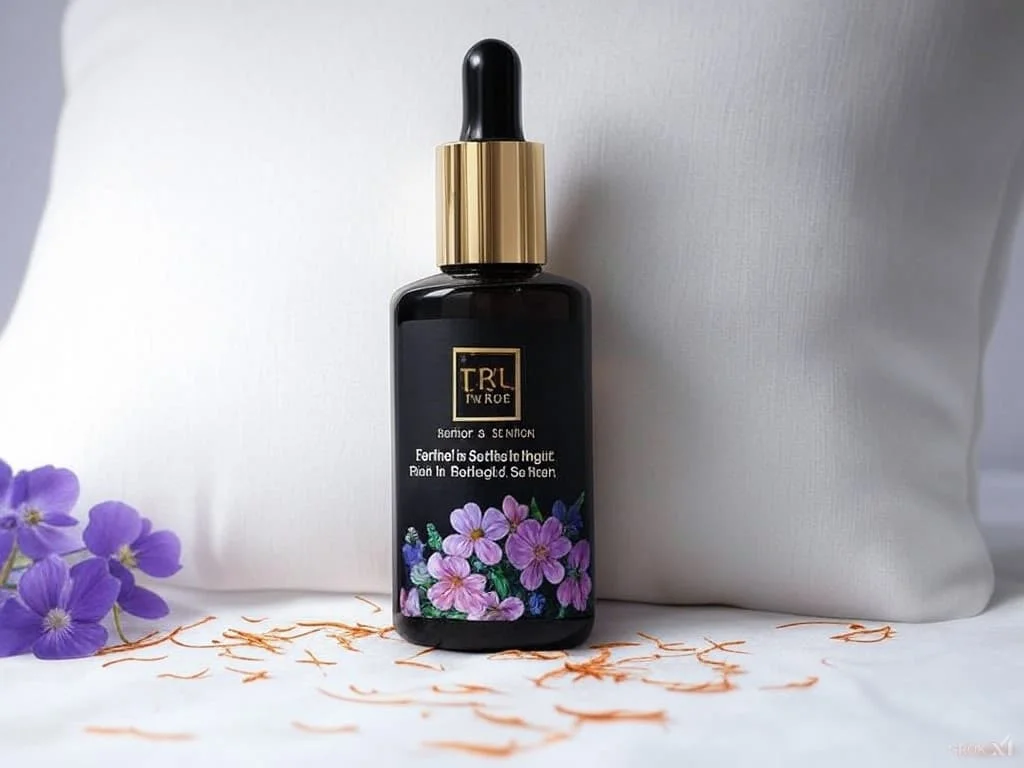Saffron, famously known as the most expensive spice globally, has been celebrated for centuries for its unique flavor and vibrant color. Beyond its culinary appeal, this vibrant spice holds a rich history in traditional medicine.
In recent years, saffron supplements have gained widespread attention for their potential health benefits, including mood improvement and better sleep. But do these claims hold up under scientific scrutiny?
This guide takes an in-depth look at this prized spice, examining its potential benefits, common uses and possible side effects. By the end, you’ll have the insights needed to decide if that supplements are right for your wellness journey. Let’s begin.
What is Saffron?
Saffron is a unique spice derived from the vibrant crimson stigmas of the Crocus sativus flower, also known as the saffron crocus. It has been cherished for centuries, not only as a culinary ingredient but also for its medicinal properties. Historically, this versatile spice has been used as a dye, flavor enhancer, and remedy for various health issues.
Why is Saffron So Expensive?
Saffron’s high-cost stems from its labor-intensive harvesting process. Each flower produces only three stigmas, which must be hand-picked. It takes approximately 50,000 to 75,000 flowers and around 40 hours of labor to produce just one pound, making it the most expensive spice in the world.

The active compounds in this spice, such as crocin, crocetin, and safranal, are responsible for its distinctive color, flavor, and potential health benefits. These powerful antioxidants contribute to its reputation as both a culinary and medicinal treasure.
Potential Health Benefits of Saffron Supplements
Saffron supplements, derived from the spice, are gaining recognition for their potential health benefits. While ongoing research continues to explore their effects, early findings show significant promise.
1. Mood and Depression
This spice has shown potential in alleviating mild to moderate depression. Studies suggest that the extract of this spice may work as effectively as certain antidepressant medications, likely due to its impact on serotonin, a neurotransmitter critical for mood regulation. This makes it an appealing natural alternative for mood enhancement.
2. Saffron for Anxiety Relief
Preliminary research indicates that this spice may have anxiety-reducing properties. By influencing neurotransmitters like serotonin, it appears to promote a sense of calm and emotional balance. This positions the spice as a potential natural remedy for managing stress and anxiety.
3. Eye Health
The antioxidants in this spice, particularly crocetin, may play a protective role in maintaining vision. Research suggests that it could help slow age-related macular degeneration (AMD), enhance visual sharpness, and protect retinal cells from damage. These findings highlight the spice’s potential contribution to long-term eye health.
4. Premenstrual Syndrome (PMS)
Saffron may offer relief from common PMS symptoms, such as irritability and mood swings. Its effect on serotonin regulation is thought to contribute to these benefits, making it a natural option for managing PMS discomfort.
5. Weight Management
Its potential role in weight management has been linked to appetite suppression and increased satiety. While research in this area is still emerging, this spice may support those seeking natural ways to manage their weight. Its ability to curb cravings and promote fullness could prove valuable.
Other Potential Benefits
Saffron is rich in antioxidants, contributing to its reputation as a natural remedy for overall well-being. Emerging research is exploring it’s potential to boost cognitive function, support memory, and even enhance libido. These areas, however, require further validation through detailed studies.
Benefits include mood improvement, anxiety reduction, enhanced eye health, relief from PMS symptoms, and possible support for weight control. Additionally, its antioxidant properties contribute to broader health advantages. Consistency in use is key to realizing these potential benefits.
Saffron Supplement for Specific Conditions

Saffron supplements have shown potential in addressing specific health concerns. While research is still developing, preliminary findings provide intriguing insights into its role in managing conditions like ADHD and hormonal balance.
1. Saffron Supplement for ADHD
Is saffron effective for ADHD? Early studies suggest that might help alleviate some symptoms of Attention Deficit Hyperactivity Disorder (ADHD). Research comparing saffron extract to methylphenidate, a standard ADHD medication, found similar improvements in certain ADHD symptoms. This effect is thought to stem from its influence on neurotransmitters like dopamine and serotonin, which play vital roles in attention and mood regulation.
However, it’s important to recognize the limitations of current research:
- Small sample sizes and short study durations.
- A lack of large-scale clinical trials to confirm these results.
While this spice may offer a complementary approach for managing ADHD symptoms, it should not replace conventional treatments. Further rigorous studies are needed to establish its long-term efficacy and safety.
2. Saffron and Hormonal Balance
What effect does saffron have on hormones? Emerging research indicates that spice may impact various hormones, contributing to its potential benefits for mood, stress, and reproductive health. Key hormonal interactions include:
- Cortisol: Known as the stress hormone, cortisol levels may be modulated by saffron, supporting its use in reducing stress and anxiety.
- Serotonin: Its appears to influence serotonin levels, which are crucial for mood, appetite, and sleep regulation.
- Estrogen and Progesterone: Studies suggest that this spice might help balance female reproductive hormones, offering relief for premenstrual syndrome (PMS) and related conditions.
While these findings are promising, the exact mechanisms by which saffron interacts with the endocrine system remain unclear. More research is needed to fully understand its effects on hormonal health.
Important Note: If you are managing a diagnosed condition or taking medications that influence your hormonal levels, consult your healthcare provider before incorporating saffron supplement into your routine.
Saffron for Hair and Skin
Saffron has long been celebrated not only for its culinary and health benefits but also for its potential to enhance hair and skin health. Although scientific research in these areas is still evolving, early insights and traditional use provide some compelling reasons to consider this spice for your beauty routine.

What Does Saffron Do for Hair?
While most claims about its benefits for hair remain anecdotal, there are several ways it might contribute to healthier locks:
- Reduce Hair Loss: The potent antioxidants in this spice could help counteract oxidative stress, a major factor in hair thinning and loss. Improved scalp circulation due to its potential properties might also nourish hair follicles, fostering stronger growth.
- Promote Hair Growth: Preliminary studies indicate that the spice could encourage cell proliferation in hair follicles, potentially supporting hair regrowth. The nutrients present in it, like vitamins and antioxidants, may also play a role.
- Improve Scalp Health: Its anti-inflammatory properties may help alleviate irritation, dandruff, and redness, improving the overall health of the scalp.
Important Note: While its shows promise for hair care, its effects are not fully confirmed by research. It should not replace proven treatments for hair loss but may be used as a complementary approach.
Saffron for Skin Health
Saffron is increasingly featured in skincare products, thanks to its rich antioxidant content and soothing properties. Here’s how it might benefit your skin:
- Antioxidant Protection: Its compounds, particularly crocin and crocetin, may help protect the skin from damage caused by free radicals, which contribute to premature aging and dullness.
- Anti-inflammatory Effects: The spice may reduce inflammation, calming irritated or sensitive skin and potentially aiding in conditions like acne or redness.
- Skin Brightening: Some evidence suggests it could help even out skin tone by reducing hyperpigmentation, giving the skin a radiant glow.
- Improved Hydration: When applied topically, this spice may support skin hydration, leaving the skin feeling softer and more supple.
Important Note: While its potential benefits for skin are promising, more robust scientific studies are needed. For those with sensitive skin, it’s advisable to conduct a patch test before applying saffron-based products.
Using Saffron Safely: Dosage and Potential Side Effects
Saffron supplements offer promising benefits, but using them responsibly is essential to maximize advantages while minimizing risks.
Is It Safe to Take Saffron Daily?
Yes, it is generally safe for most adults when consumed within the recommended limits. However, excessive intake can lead to adverse effects.
Recommended Dosage:
- For general health benefits, studies suggest 20–100 mg of extract per day.
- For conditions like depression or anxiety, 30 mg daily has shown efficacy in some research.
- Avoid consuming more than 1.5 grams per day, as higher doses may cause toxicity.
Always adhere to the dosage instructions on the supplement label and consult your healthcare provider before use.
Who Should Avoid Saffron?
Certain groups should exercise caution or avoid saffron altogether:
- Pregnant or breastfeeding women: The spice may stimulate the uterus and pose risks during pregnancy.
- Individuals with bleeding disorders: It might slow blood clotting, increasing the risk of bleeding.
- People with bipolar disorder: The spice could, in some cases, trigger manic episodes.
- Those taking medications: It may interact with blood thinners, blood pressure medications, and antidepressants.
- Allergy sufferers: Avoid this spice if you’re allergic to it or related plants.
Does Saffron Make You Sleepy?
Some studies suggest saffron might have mild sedative effects, promoting relaxation and improved sleep quality. However, individual responses vary. While some people experience drowsiness, others may notice no effect.
Should I Take Saffron in the Morning or at Night?
When to take saffron depends on your specific goals:
- Morning: If you’re using for mood enhancement or energy, take it in the morning.
- Night: If it helps you relax or improves your sleep, consider taking it in the evening.
Experiment with timing to see what works best for you.
Is Saffron Safe for the Liver?
Research indicates that is generally safe for liver health. Its antioxidant properties may even offer protective effects. However, prolonged use or high doses could strain the liver. Individuals with liver conditions should consult their doctor before starting saffron supplement.
Potential Side Effects of Saffron
Although saffron is well-tolerated, some users may experience:
- Dry mouth
- Dizziness
- Nausea
- Headaches
- Appetite changes
- Mild anxiety
- Allergic reactions (rare)
Important Note: Always consult with a healthcare professional before starting any new supplement, especially if you have pre-existing health conditions or take medications. Proper guidance ensures safe and effective use.
Choosing a Quality Saffron Supplement
As saffron supplement gain popularity, selecting a high-quality product is essential to ensure safety and effectiveness. Here’s how to make an informed choice:
- Source and Purity: Opt for supplements that clearly state their origin. Reputable regions include Iran, Spain and Greece, known for producing high-quality. Ensure the product uses pure extract without fillers, additives, or artificial ingredients.
- Standardized Extract: Look for supplements containing a standardized extract, which guarantees consistent levels of active compounds like crocin and safranal, responsible for its potential benefits.
- Third-Party Testing: High-quality brands often have their products tested by independent laboratories to confirm their purity and potency. Certifications from organizations like NSF, USP or ConsumerLab provide additional assurance of quality.
- Read Reviews: Customer feedback can offer valuable insights into the product’s effectiveness and overall quality. Be cautious of overly generic or biased reviews.
By prioritizing these factors, you can make a more confident choice and maximize the potential benefits of saffron supplements.






